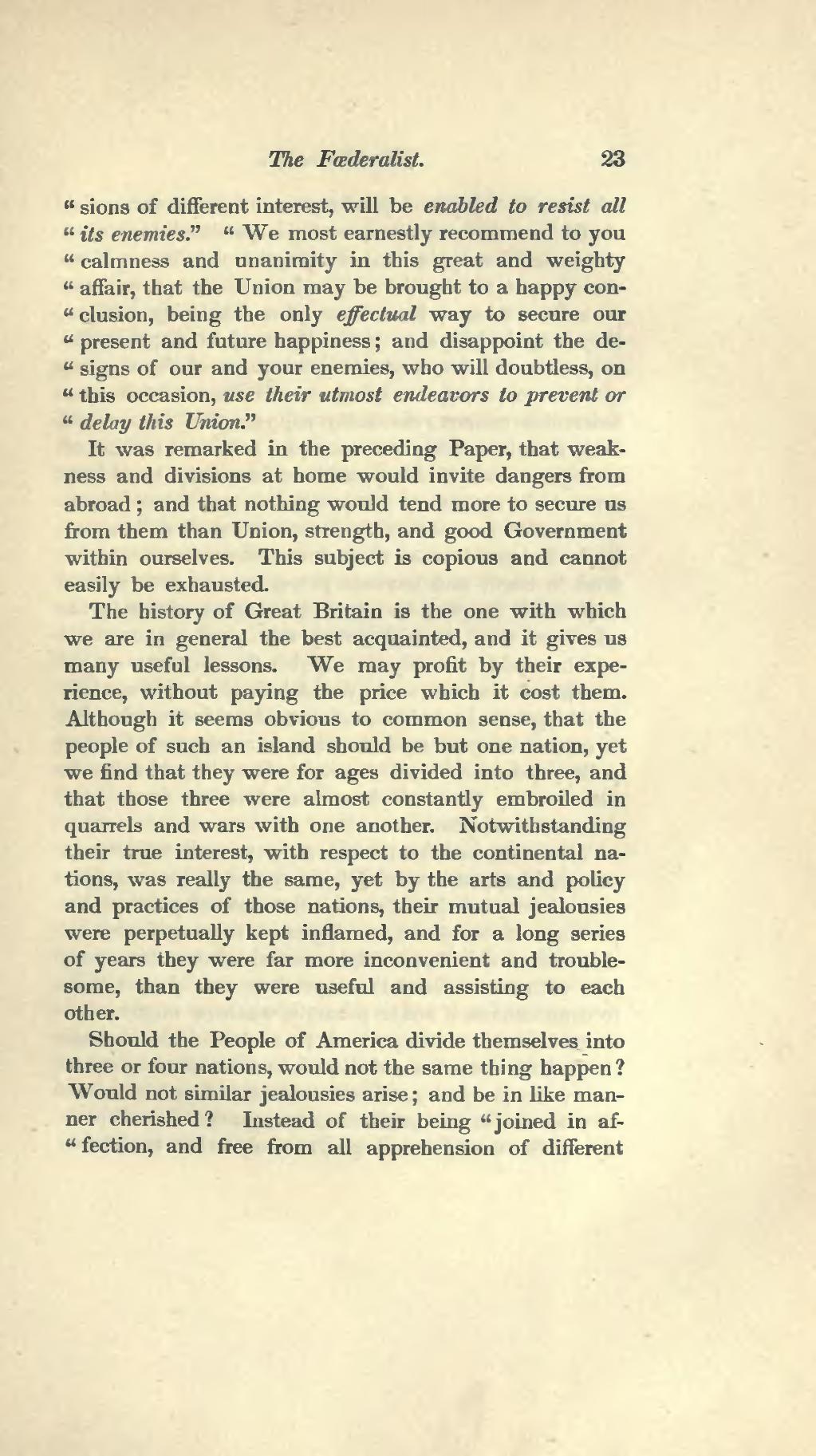sions of different interest, will be enabled to resist all its enemies." "We most earnestly recommend to you calmness and unanimity in this great and weighty affair, that the Union may be brought to a happy conclusion, being the only effectual way to secure our present and future happiness; and disappoint the designs of our and your enemies, who will doubtless, on this occasion, use their utmost endeavors to prevent or delay this union."
It was remarked in the preceding Paper, that weakness and divisions at home would invite dangers from abroad; and that nothing would tend more to secure us from them than Union, strength, and good Government within ourselves. This subject is copious and cannot easily be exhausted.
The history of Great Britain is the one with which we are in general the best acquainted, and it gives us many useful lessons. We may profit by their experience, without paying the price which it cost them. Although it seems obvious to common sense, that the people of such an island should be but one nation, yet we find that they were for ages divided into three, and that those three were almost constantly embroiled in quarrels and wars with one another. Notwithstanding their true interest, with respect to the continental nations, was really the same, yet by the arts and policy and practices of those nations, their mutual jealousies were perpetually kept inflamed, and for a long series of years they were far more inconvenient and troublesome, than they were useful and assisting to each other.
Should the People of America divide themselves into three or four nations, would not the same thing happen? Would not similar jealousies arise; and be in like manner cherished? Instead of their being "joined in affection, and free from all apprehension of different
